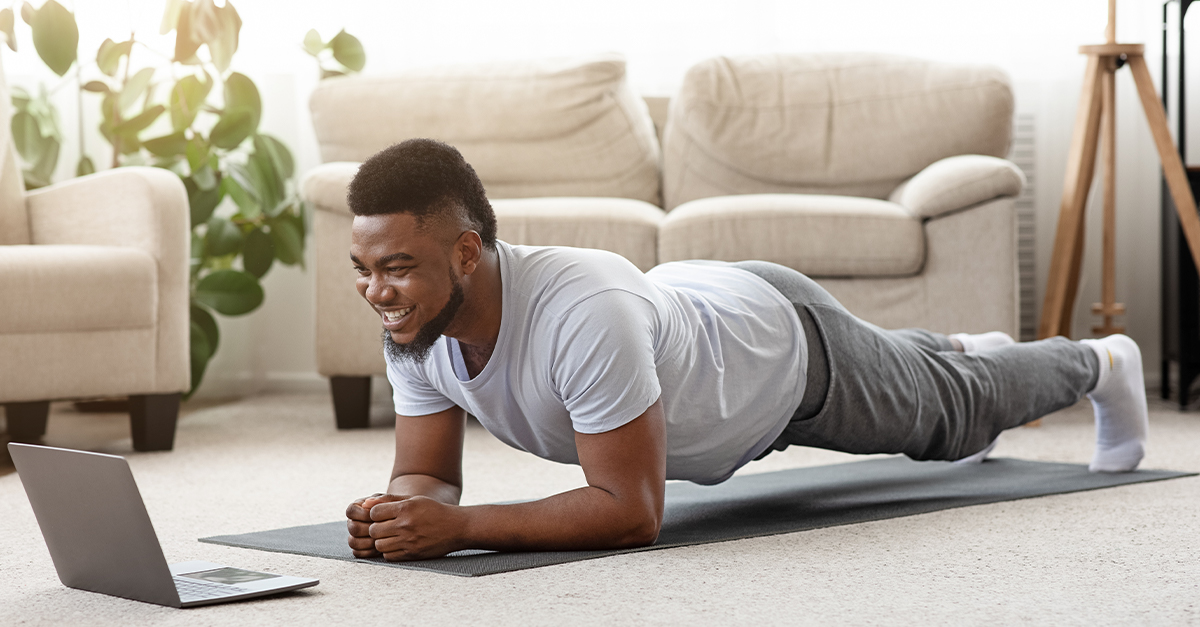
How to Fight Off the COVID 19… Pounds
With the global pandemic making its (ugly) presence extremely well known in just about every single corner of our planet, certain lifestyle changes are not only expected, but fully accepted too. We have all been hit with gym closures, an inability to see family and friends, restricted access to healthy foods, and in some cases, complete powerlessness when it comes to heading out for something as simple as a walk.
The result? A few extra layers around the midsection that seemed to almost appear out of nowhere. Though, this increase on the scale is not the only new addition to your life, but usually the frustration and stress tied in with weight gain is a little more prominent too; and here is the big secret:
You are not alone.
According to a survey carried out by OnePoll for Cambridge Weight Plan, it was found that 48% of women and 44% of men gained weight during the pandemic. That’s almost 50% of all adults!
Acceptance is key. What is done is done, and it can be undone.
First, it’s important to understand exactly why almost 1 in 2 people have gained weight during this terrible pandemic. Aside from the obvious lack of exercise activity (runs, walks, gym workouts, home workouts, etc.) and non-exercise activity (school trips, odd errands, social events, etc.) there are a few other factors at play here.
Increased stress – Unsurprisingly, stress levels in adults are through the roof. Stress encourages the release of the hormone Cortisol, which is responsible for fat and carbohydrate metabolization causing a surge of energy in the body. This is something rather essential in a survival situation (especially if running from a hungry lion on the Serengeti Plains), but not necessarily essential when confined to your humble, safe abode. Additionally, an elevation in cortisol levels encourages an appetite for sweet and savoury food, which brings us to our next point…
Increased snacking – A beautiful combination of increased cortisol and boredom can be extremely dangerous for that hidden pack of Doritos. And that Snickers bar. And that sugary Dr. Pepper (not a real doctor). Of course, with these snacks come additional Calories; Calories that are not really needed and can be a cause for our next point…
Decreased sleep – Believe it or not, with all the time spent at home, we’re actually sleeping less! Angela Drake, a UC Davis Health clinical professor in the Department of Psychiatry and Behavioral Sciences calls it ‘Coronasomnia’; it’s a thing! And a thing that can be responsible for hormone imbalances, further stress, weight gain, anxiety, high blood pressure, and even an increased risk of a heart attack or stroke.
Again, you are not alone. If you do suffer from any of the above, you have the power to take command.
By analyzing the three points above, and focusing on ways to improve your lifestyle, those COVID 19 pounds will naturally become COVID 18, and then 15, and then 11…
Take some time, every day, to destress. If working from a computer, spend 5 – 10 minutes of each hour away from the screen, listening to calming music while giving your eyes (and head) a break from the blue light emitted from the screen (something also responsible for affecting sleep cycles). If you’re keen to try something new, why not give meditation a go! There are an abundance of apps that provide introductory guides to meditation which have been shown to reduce levels of stress; there’s no harm in trying!
Manage your snacks. When feeling the need to snack, take a moment to ask yourself ‘am I really hungry?’, or ‘is this snack going to bring me closer to or further away from my lifestyle goals’. By simply reflecting before snacking, you may find that you can probably hold out until your next meal. If the hunger is real, shoot for a healthier alternative. Fruit is a great choice, but not always the most satisfying when trying to nurse that craving! Baked vegetable chips, sparkling water with lemon, dark chocolate, or dried fruit are all better options over fried food, soda, sugary chocolate and sweets.
Sleep. As hard as that may be, try your best to get your sleep in. It will affect every single aspect of your day. By eliminating screen time the hour before bed you’ll naturally feel the need to mentally switch off a little more. Other great ways to help drift off is to build a bedtime routine that allows the body and mind to recognise that now… is the time… to sleep.
Set your stage by getting comfortable in bed with a book (good old-fashioned paper!), a cup of decaffeinated tea (chamomile is always a great choice), and some calming music. This bedtime routine will take you 15 minutes, but will truly benefit you in infinite ways.
Remember, you are not alone. Talk to your friends, family, and doctor; or reach out to online blogs and communities to discuss the ways others are moving forward. But most of all, take more time to focus on you. Before you know it, COVID 19, and the pounds brought along with it, will be all but a distant memory.
